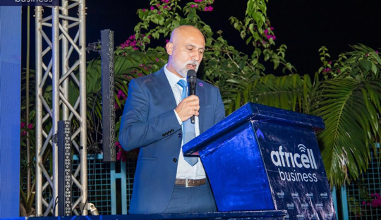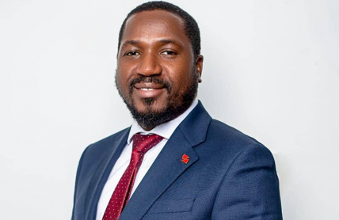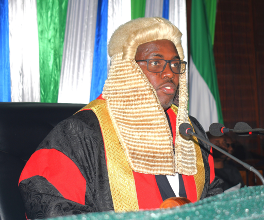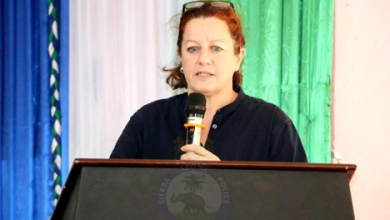Trapped in the Heat… Is State House Becoming a Prison for President Bio?
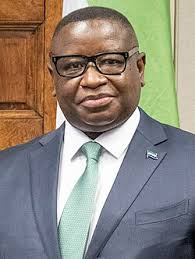
By Alpha Amadu Jalloh
Behind the majestic façade of Sierra Leone’s State House lies a quieter, more complicated story—one that has little to do with politics or governance, and everything to do with the emotional cost of leadership.
President Julius Maada Bio is often seen abroad—at diplomatic meetings, international forums, and official missions. While many of these travels are in line with his presidential duties, some close to the Presidency suggest a more personal motivation behind the frequent international trips.
According to insiders and long-time observers, President Bio may be seeking not just diplomatic engagement, but emotional refuge—distance from a home environment that has become increasingly tense and emotionally draining.
Within the walls of State House, the role of the President extends beyond national leadership. Like any individual, he is also a husband and father. And it is in this private capacity, some sources claim, that the President faces his most persistent challenges.
Observers have noted a growing trend: the President now rarely travels with First Lady Fatima Bio, a notable shift from earlier years. While no official explanation has been provided, speculation points to deepening personal tensions that have made joint public appearances—and especially international travel together—less frequent.
According to these accounts, disagreements over protocol, personal influence, and decision-making have contributed to a dynamic that is, at best, strained. The First Lady, a high-profile figure in her own right, is known for her assertiveness and active public presence. However, some insiders claim this assertiveness has translated into overreach, contributing to friction within the First Family.
Further complicating the picture are reports of external influences. One name that frequently surfaces is Dr. Sylvia Blyden, a prominent political voice with her own complex history with the First Family. While the extent of her influence remains speculative, sources suggest that external advisers—well-meaning or otherwise—have contributed to the ongoing strain within the President’s household.
For President Bio, this tension appears to extend beyond ordinary marital challenges. Those close to him describe a man increasingly cautious, emotionally distant at home, and more at ease when abroad. “He speaks more freely outside of State House,” said one source. “At home, every word is weighed. Every move is measured.”
This emotional tension, they argue, has turned the very seat of power into a place of discomfort—a space where the pressures of governance are compounded by the emotional weight of unresolved domestic conflict.
While President Bio’s political decisions and leadership are constantly scrutinized by the public and the press, far less attention is paid to the emotional toll of such a high-pressure role—particularly when the support system at home is under strain.
The absence of emotional harmony at home can be as debilitating as any political crisis. In such circumstances, it’s not difficult to understand why foreign travel may represent more than diplomacy—it may be a form of personal reprieve.
What emerges from this narrative is not a story of weakness, but one of human complexity. Even the highest office does not shield a person from private hardship. If anything, it magnifies it.
President Bio’s current reality—if the reports are to be believed—demonstrates the emotional cost of leadership when the lines between public duty and private struggle begin to blur. And while the public sees polished speeches, handshakes with world leaders, and ribbon-cuttings, they rarely see the personal endurance behind the scenes.
There’s a lesson here—not just about one man’s emotional burden, but about how we, as a society, view leadership. We demand strength and decision-making, but often forget that leaders are also fathers, husbands, and human beings, subject to the same personal trials as anyone else.
If there is truth to the growing distance between the President and the First Lady, it is not a matter for gossip—it is a national concern, insofar as it affects the well-being and performance of the head of state.
In the end, a leader’s sanctuary should be their home. When that sanctuary becomes a place of pressure, the entire nation feels the ripple effect.


